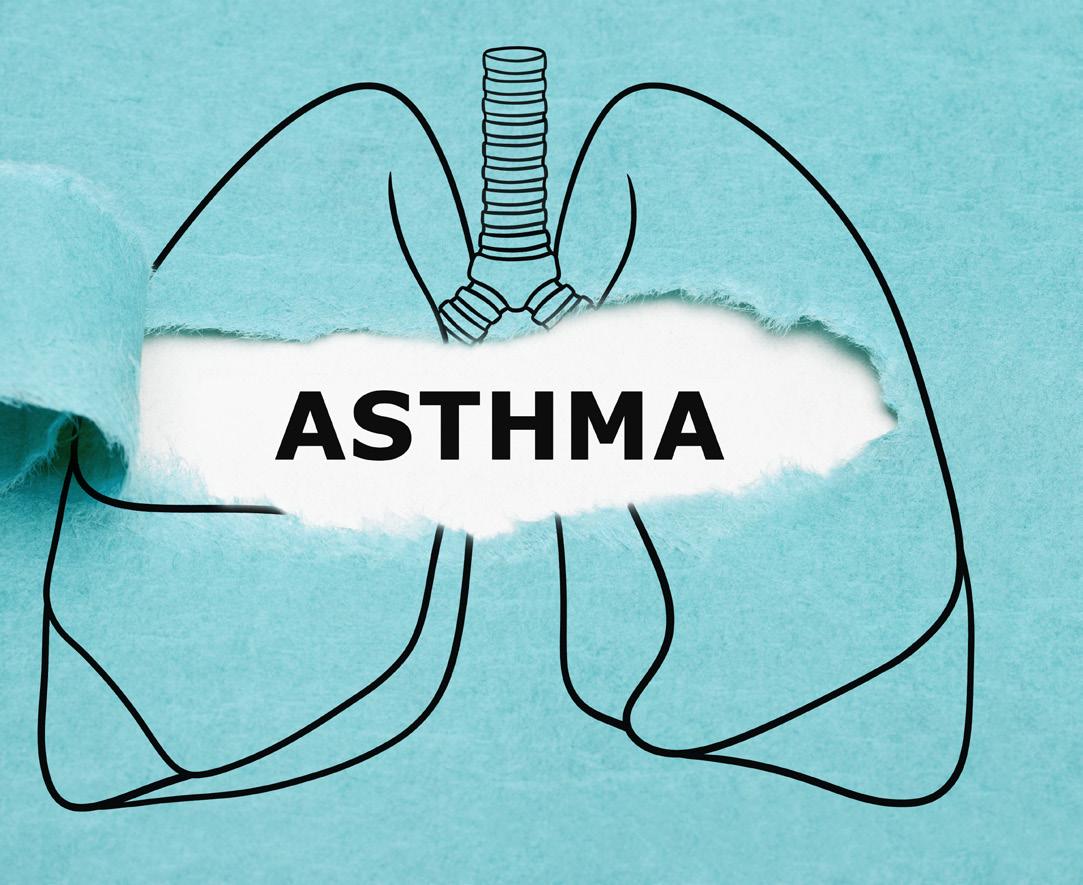
3 minute read
Federal Agency Mulls Ban on Gas Stoves Due to Health Concerns
Gas stoves could face new emissions standards or even be banned because of their link to indoor air pollutants and childhood asthma, according to the U.S. Consumer Product Safety Commission (CPSC).
The federal agency will open public comment on gas cooking stoves and their hazards sometime this winter, Bloomberg News reported.
Advertisement
“This is a hidden hazard,” agency commissioner Richard Trumka Jr., said in an interview. “Any option is on the table. Products that can't be made safe can be banned.”

About 12% of childhood asthma cases can be linked to gas stove use, according to a recent study in the International Journal of Environmental Research and Public Health.
“There is about 50 years of health studies showing that gas stoves are bad for our health, and the strongest evidence is on children and children's asthma,” said study co-author Brady Seals, a manager in the car- bon-free buildings program at RMI, a nonprofit clean energy group. “By having a gas connection, we are polluting the insides of our homes.”
About 40% of Americans have natural gas stoves in their homes.
The stoves emit nitrogen dioxide, carbon monoxide and fine particulate matter at levels deemed unsafe by the U.S. Environmental Protection Agency (EPA) and the World Health Organization (WHO), according to Bloomberg News.
In October, Consumer Reports urged readers to buy electric after tests on gas ranges found high levels of nitrogen oxide gases.
The issue is one likely to generate back and forth as interest groups weigh in on the issue.
Lawmakers have asked for requiring warning labels, range hoods and performance standards. U.S. Sen. Cory Booker of New Jersey and U.S. Rep. Don Beyer of Virginia, both Democrats, were among those who wrote to the CPSC last month urging action and calling the emissions a “cumulative burden” on Black, Hispanic and low-income households, according to Bloomberg News.
Some Republicans have called the plans government overreach.
“If the CPSC really wanted to do something about public health, it would ban cigarettes, or automobiles, long before it moved on to address stoves,” said Mike McKenna, a GOP energy lobbyist. “It's transparently political.”
The Association of Home Appliance Manufacturers, which represents gas range manufacturers, said all cooking produces emissions, not just gas.
“Ventilation is really where this discussion should be, rather than banning one particular type of technology,” said Jill Notini, a vice president with the Washington, D.C.based trade group. “Banning one type of a cooking appliance is not going to address the concerns about overall indoor air quality. We may need some behavior change, we may need [people] to turn on their hoods when cooking.”
Policymakers in nearly 100 cities and counties have adopted policies that require or encourage a move away from fossil fuel-powered buildings in an effort to address climate change, Bloomberg News reported. Natural gas distributors have said that bans on this fuel would offer little environmental benefit but would increase costs.
“The U.S. Consumer Product Safety Commission and EPA do not present gas ranges as a significant contributor to adverse air quality or health hazard in their technical or public information literature, guidance, or requirements,” said Karen Harbert, president of the American Gas Association.
The Inflation Reduction Act may provide some relief to consumers who can get rebates of up to $840 to purchase new electric ranges, part of $4.5 billion to help low- and moderate-income households electrify their homes, Bloomberg News reported.
The commission could issue a proposal as soon as this year, Trumka said.
“There is this misconception that if you want to do fine-dining kind of cooking it has to be done on gas,” Trumka said. “It's a carefully manicured myth.”
FDA Approves New 2-Drug Combo Medicine for Asthma
Adults with asthma now have a new rescue medication to turn to after the U.S. Food and Drug Administration approved Airsupra in January.
The drug is the first approved to combine albuterol (a beta-2 adrenergic agonist) and budesonide (a corticosteroid).
It's meant for the as-needed treatment or prevention of bronchoconstriction (narrowed airways) and to reduce the risk of asthma attacks in patients with asthma aged 18 and older.
This medication is also the first approved in the United States to contain an inhaled corticosteroid approved as a reliever rather than as a controller of asthma symptoms.
Asthma affects 24 million Americans, with symptoms that vary by person and can change over time. A long-term condition, it causes the airways to become inflamed and narrow. Someone having an asthma attack might cough, wheeze, feel chest tightness and be short of breath.

Prior to the approval, the FDA evaluated the drug's effectiveness in reducing severe asthma attacks in a randomized, double-blind, controlled study with patients who had moderate to severe asthma.
The patients in the study were randomly assigned to use either Airsupra or just albuterol on its own. Patients received treatment for at least 24 weeks.
The researchers looked at the time a patient had to the first severe asthma attack that required systemic corticosteroids for at least three days or an emergency room visit that led to taking the steroids or hospitalization for at least 24 hours.
Adult patients treated with Airsupra had a 28% reduction in the risk of a severe asthma attack compared to those using just the albuterol. Airsupra is taken through two oral inhalations.
Most common side effects for those taking Airsupra were headache, an oral yeast infection, cough and difficulty speaking.









